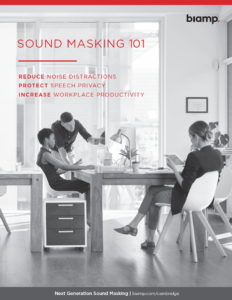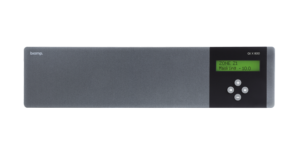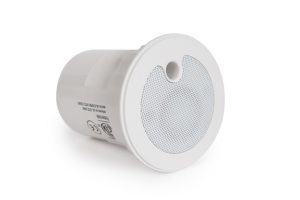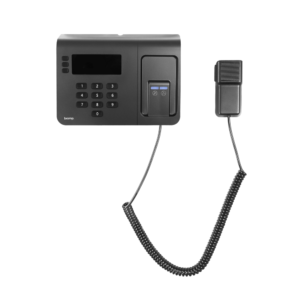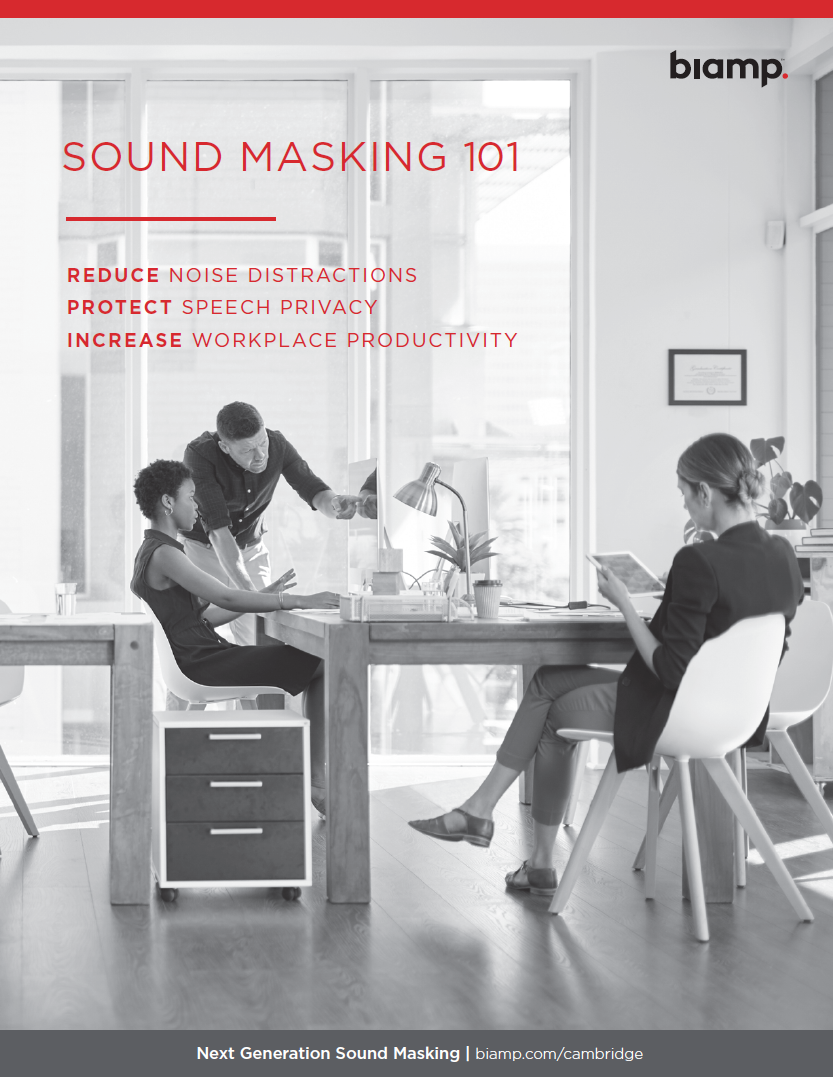1. The Everyday Office Worker
 Tired of being distracted by frivolous water cooler gossip? Wish you could quickly call your doctor without everyone knowing about it? Office noise distractions and lack of speech privacy are key drivers to worker dissatisfaction in the office. Sound masking can help by reducing the intelligibility of speech so other conversations are not distracting to you, and your conversations are not overheard by unwanted listeners. Sound masking helps to make for a more productive, private, and comfortable office.
Tired of being distracted by frivolous water cooler gossip? Wish you could quickly call your doctor without everyone knowing about it? Office noise distractions and lack of speech privacy are key drivers to worker dissatisfaction in the office. Sound masking can help by reducing the intelligibility of speech so other conversations are not distracting to you, and your conversations are not overheard by unwanted listeners. Sound masking helps to make for a more productive, private, and comfortable office.
2. The CEO
 The Chief Executive Office has a lot on their plate and does not have time to be distracted by nearby conversations. CEOs also have to make important decisions and have highly confidential conversations that other office workers should not overhear. Sound masking can help CEOs protect their speech privacy and reduce noise distractions to increase their focus and productivity.
The Chief Executive Office has a lot on their plate and does not have time to be distracted by nearby conversations. CEOs also have to make important decisions and have highly confidential conversations that other office workers should not overhear. Sound masking can help CEOs protect their speech privacy and reduce noise distractions to increase their focus and productivity.
3. Human Resources
 Human resources priority is keeping employees happy and productive. Lack of speech privacy is a key driver of worker dissatisfaction. Sound masking works by adding soft background noise into the office to help mask conversations and protect speech privacy. This helps workers feel more comfortable having conversations in private. Additionally, sound masking helps to make speech less intelligible. Simply put, conversations that would normally distract office workers do not anymore. A study by Brill, BOSTI Associates* showed that sound masking contributed to over 2% productivity gain.
Human resources priority is keeping employees happy and productive. Lack of speech privacy is a key driver of worker dissatisfaction. Sound masking works by adding soft background noise into the office to help mask conversations and protect speech privacy. This helps workers feel more comfortable having conversations in private. Additionally, sound masking helps to make speech less intelligible. Simply put, conversations that would normally distract office workers do not anymore. A study by Brill, BOSTI Associates* showed that sound masking contributed to over 2% productivity gain.
4. Hospital Patients
 A Press Ganey** survey showed that sound masking increased patient satisfaction 33%, specifically regarding noise around their room. When a patient is recovering and needs rest and sleep, hospital noise can be distracting and uncomfortable. Sound masking introduces soft background ambient sound into the room to help mask distracting noises so patients can rest and sleep. Sound masking also helps protect patient privacy, by masking private conversations patients may have with their healthcare provider so others do not overhear their confidential information.
A Press Ganey** survey showed that sound masking increased patient satisfaction 33%, specifically regarding noise around their room. When a patient is recovering and needs rest and sleep, hospital noise can be distracting and uncomfortable. Sound masking introduces soft background ambient sound into the room to help mask distracting noises so patients can rest and sleep. Sound masking also helps protect patient privacy, by masking private conversations patients may have with their healthcare provider so others do not overhear their confidential information.
5. Architects
 Workplace acoustics are often negatively impacted by the increased use of open office concepts and reflective materials such as hardwood floors, glass walls, and open ceiling decks. Sound masking is a smart solution to the acoustic problems in open office concepts that do not sacrifice design aesthetics. When used in combination with other acoustical treatments, sound masking can be a vital piece of the architectural acoustics puzzle.
Workplace acoustics are often negatively impacted by the increased use of open office concepts and reflective materials such as hardwood floors, glass walls, and open ceiling decks. Sound masking is a smart solution to the acoustic problems in open office concepts that do not sacrifice design aesthetics. When used in combination with other acoustical treatments, sound masking can be a vital piece of the architectural acoustics puzzle.
Download our free Sound Masking 101 Brochure

